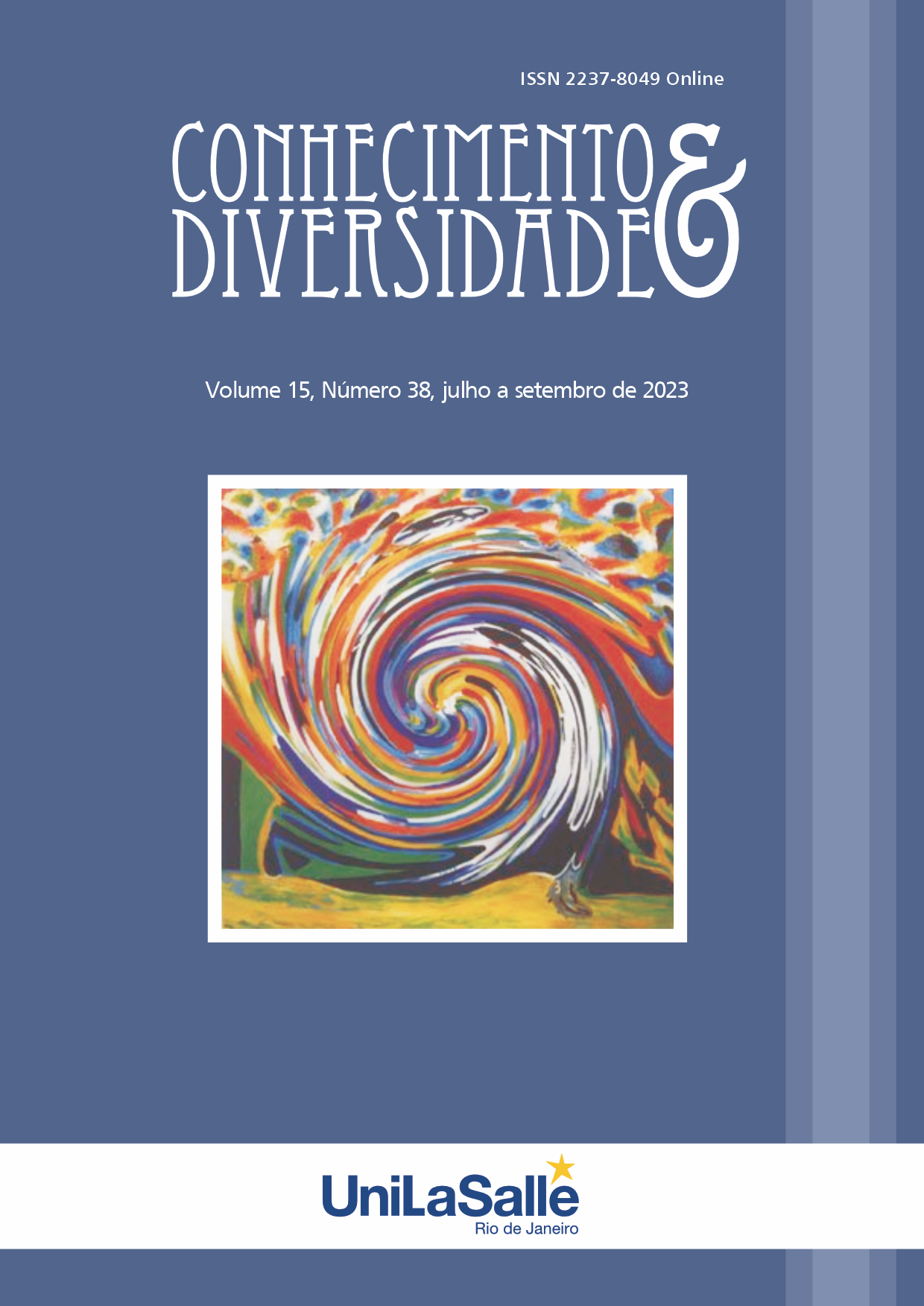ACADEMICS’ VIEWS ON CONFLICT RESOLUTION SKILLS WHEN PROBLEMS ARISE IN INTERPERSONAL RELATIONS
DOI:
https://doi.org/10.18316/rcd.v15i38.11078Keywords:
Academic, Psychological state, Conflict, Resolution skills, Interpersonal relationshipAbstract
This study aims to determine academics’ conflict resolution skills when problems arise in their interpersonal relationships. The data obtained to achieve this objective included academics’ sociodemographic distribution and administrator-staff relations in the university, the atmosphere among the stakeholders, the administrators’ relationships with teachers, students, and parents, the distribution of jobs between administrators and staff, and academics’ physical reactions of academic to conflict resolution. This qualitative study was conducted as a case study. The population of the study consisted of 20 academics working in a private university in Nicosia, in Northern Cyprus (Turkish Republic of Northern Cyprus) during the 2021-2022 academic year. Purposeful sampling to represent the study population was first determined using the purposeful sampling method; the snowball sampling technique would be used as long as different views were obtained. The majority of the participants consisted of women, most of whom were aged 30-40 years, married, had children, and 16 or more years of professional experience. A semi-structured interview form, which was prepared by the researcher, was used as a data collection tool. The research data were analyzed using the content analysis method. The results showed that the established relationship was positive and authoritarian. The participants expressed their views on the need to create a positive atmosphere among stakeholders and strengthen communication, and highlighted such illnesses as physical stress, heart palpitations, difficulty in breathing, headache, neck pain, shoulder pain, and depressive mood.
References
Akar, F. (2019). Üniversitede akademisyen ve yönetici yetenekleri: Yetenek yönetiminin uygulanabilirliği konusunda bir inceleme. Egitimde Nitel Araştırmalar Dergisi – Journal of Qualitative Research in Education, 7(2), 514-541. doi: 10.14689/issn.2148-2624.1.7c.2s.3m
Akyol, B., Yılmaz, K., Çavuş, B., & Aksoy, V. (2018). Akademisyen yöneticilerin görüşlerine göre türkiye'de yükseköğretimin sorunları. Electronic Turkish Studies, 13(11).
Alparslan, A. M. (2014). Öğretim elemanlarının işlerinden tatmin, üniversitelerinden memnun ve gönüllü olmalarındaki öncüller: Mehmet Akif Ersoy Üniversitesi’nde bir araştırma. Mehmet Akif Ersoy Üniversitesi Sosyal Bilimler Enstitüsü Dergisi, 6(11), 82-101.
Cayvarlı, P. E., & Şahin, S. (2015). Akademisyen algılarına göre üniversitelerde psikolojik yıldırma: Dokuz Eylül Üniversitesi örneği. Yükseköğretim Dergisi, 5(1), 9-25.
Christensen, L. B., Johnson, R. B., & Turner, L. A. (2015). Research methods: Design and analysis (A. Aypay, Trans. Ed.). Ankara, Turkey: Ani.
Cohen, L., Manion, L., & Morrison, K. (2005). Research methods in education. (5th Ed.). London: Routledge Falmer.
D’Zurilla, T..J., Nezu, A. M. ve Maydeu-Oliveras, A. (2004). Social problem solving: Theoryandassesment. Social problem solving: Theory, researchand training, Ec. Chang, T.J. D’Zurillaand L.J. safnna, (Ed.), Washington DC: American Psychological Association.
Demir, B.S. (2013). Araştırma Deseni: Nitel, Nicel, ve Karma Yöntem Yaklaşımları. Eğiten Kitap: Ankara.
Demir, E., Demir, C. G., & Özdemir, M. Ç. (2017). Akademik yükseltme ve atama sürecine yönelik öğretim üyesi görüşleri. Yükseköğretim ve Bilim Dergisi, 7(1), 12-23.
Erdil, O., Keskin, H., İmamoğlu, S. Z., ve Serhat, E. R. A. T. (2011). Yönetim tarzı ve çalışma koşulları, arkadaşlık ortamı ve takdir edilme duygusu ile iş tatmini arasındaki ilişkiler: Tekstil sektöründe bir uygulama. Doğuş Üniversitesi Dergisi, 5(1), 17-26.
Johnson, D. W. ve Johnson R. T. (2004). Implementingthe “teachingstudentsto be peacemakers program”. Theoryıntopractice, 43(1), 68-79.
Karip, E. (2003). Çatışma yönetimi. Ankara: Pegem A Yayınları.
Kelecioğlu, H., Bilge, F. ve Akman, Y. (2006). Öğretim Elemanları İş Doyumu Ölçeğinin geliştirilmesi. Türk Psikolojik Danışma ve Rehberlik Dergisi, 3(26), 115-128.
Merriam, S.B. (2013). Nitel araştırma: Desen ve uygulama için bir rehber (3. Baskıdan Çeviri: Çeviren: S.Turan). Ankara: Nobel Yayın Dağıtım.
Öğülmüş, S. (2001). Kişiler arası sorun çözme becerileri ve eğitimi. Ankara: Nobel.
Öner, U. (2004). Çatışma çözme ve arabuluculuk eğitimi. İlköğretimde rehberlik. (Ed: Yıldız Kuzgun), (5. Baskı, 189-227). Ankara: Nobel
Özer, Y. E. (2011). Girişimci üniversite modeli ve Türkiye. Uludağ Üniversitesi İktisadi ve İdari Bilimler Fakültesi Dergisi, 2, 85-100.
Öznacar, B., Güldal Kan, Ş., & Şensoy, Ş. (2018). An evaluation of positive psychological state of educational administrators in a tolerance context. Quality & Quantity, 52, 1093-1104.
Seçer, B. (2021). Akademisyen olmayanlar açısından doktora eğitimi. İzmir İktisat Dergisi, 36(2), 295-313.
Türnüklü, A. ve Şahin, İ. (2004). 13-14 yaş grubu öğrencilerin çatışma çözme stratejilerinin incelenmesi. Türk Psikoloji Yazıları, 7(13), 45-61.
Ültay, E., & Ültay, N. (2018). Akademik teşvik ödeneğinin bilimsel faaliyetlere etkisi hakkındaki akademisyen görüşleri. Yükseköğretim ve Bilim Dergisi, (1), 162-171.
Watty, K. (2003) whenwill Academics Learn About Quality?,Quality in highereducation, 9 [3] 213-221.
Yıldırım, A. ve Şimşek, H. (2013). Sosyal Bilimlerde Nitel Araştırma Yöntemleri. Ankara: Seçkin Yayıncılık.
YILMAZ, Ö., & Memişoğlu, S. P. (2019). Yükseköğretim kurumlarında akademik performans değerlendirmeye ilişkin akademisyen görüşleri. Yükseköğretim ve Bilim Dergisi, (3), 542-554.
Downloads
Published
Issue
Section
License
Copyright (c) 2023 Şebnem Güldal Kan, Behçet Öznacar

This work is licensed under a Creative Commons Attribution 4.0 International License.
As recommended by the Public Knowledge Project, RCD adopts for its articles a CREATIVE COMMONS Attribution CC BY 4.0 license.
This license allows others to distribute, remix, adapt and build upon your work, even commercially, as long as they credit you for the original creation.
This is the most appropriate license offered.
Recommended for maximum dissemination and use of licensed materials.



